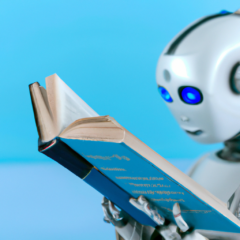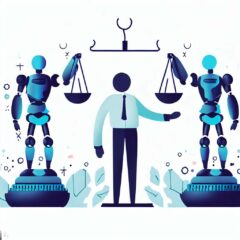Responsible Artificial Intelligence
The research area “Responsible Artificial Intelligence” summarizes our work that deals with the role of AI in business and society and that addresses the positive, but also the negative impact of AI on people and organizations. Here, we examine the role of algorithms in decision-making and which dimensions contribute to fair AI. We also address the responsibility of companies and individuals in the development and use of AI-based systems as well as the design options for AI governance and AI ecosystems.


